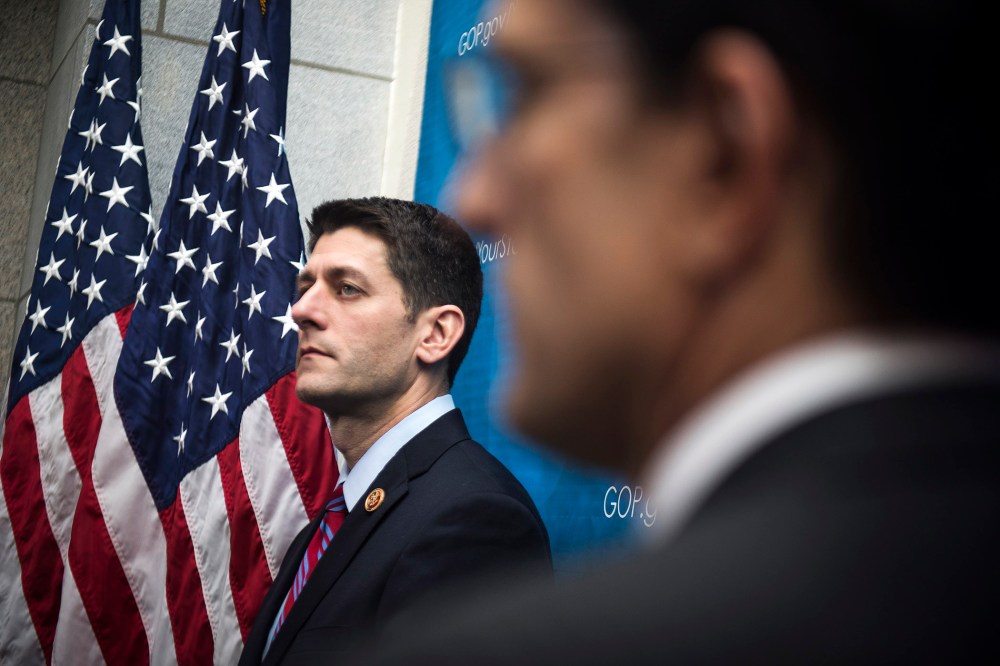For months, Republican budget guru Rep. Paul Ryan of Wisconsin has been telegraphing his plan to engineer a bold new conservative anti-poverty agenda. On Monday, the House Budget Committee which Ryan chairs began to lay the groundwork for that agenda by releasing a comprehensive report intended to judge the effectiveness of 92 federal anti-poverty problems.
The 204-page report, called “The War on Poverty: 50 Years Later,” offers no new proposals or guidance on how to fight poverty. Instead, the report offers a scathing critique of federal programs designed to help the neediest of Americans.
“The very disarray among all these federal programs has created what’s known as the ‘poverty trap,’” the report said. “And because these programs are means-tested–meaning that benefits decline as recipients make more money–poor families face very high implicit marginal tax rates. The federal government effectively discourages them from making more money.”
Despite the lack of any outright proposals, the report does offer some clues regarding the likely shape of the House Republican budget, which will be released later in the month. For example, food stamps—which have already been cut significantly over the past few months—get singled out as being inefficient and ineffective. Although the report concedes that food stamps have reduced poverty, it argues that the effect has been slight at best.
Medicaid comes in for similarly rough treatment, as it “has little effect on patients’ health” according to the report. It also goes after the educational program Head Start for “failing to prepare children for school.”

But Ryan and the staff of the House Budget Committee did not pen an across-the-board denunciation of the welfare state. Think Progress counted the number of programs that received a stamp of approval and found at least 16, including the Earned Income Tax Credit and Medicare Part D. The report also hailed as an unqualified success the bipartisan welfare reform law signed by President Clinton in 1996.
“The creation of the Temporary Assistance for Needy Families program is widely seen as the most successful reform of a welfare program,” according to the report. That view is contested by researchers from the Center on Budget and Policy Priorities (CBPP), who find that the program’s “role as a safety net has declined sharply over time.”











